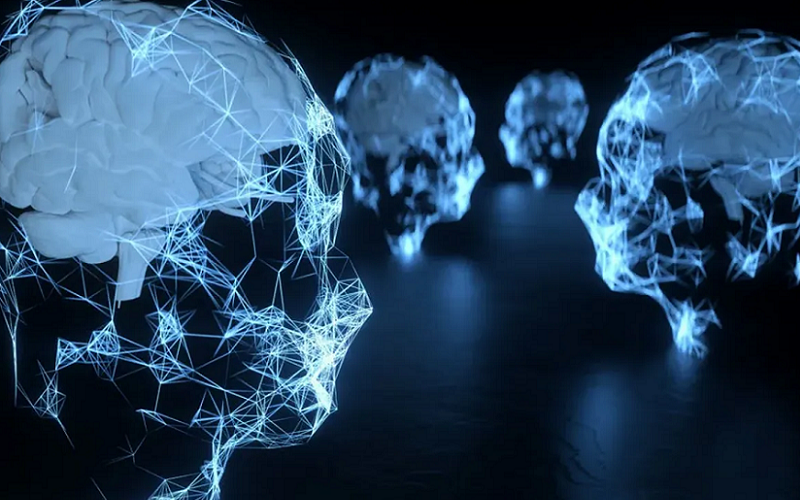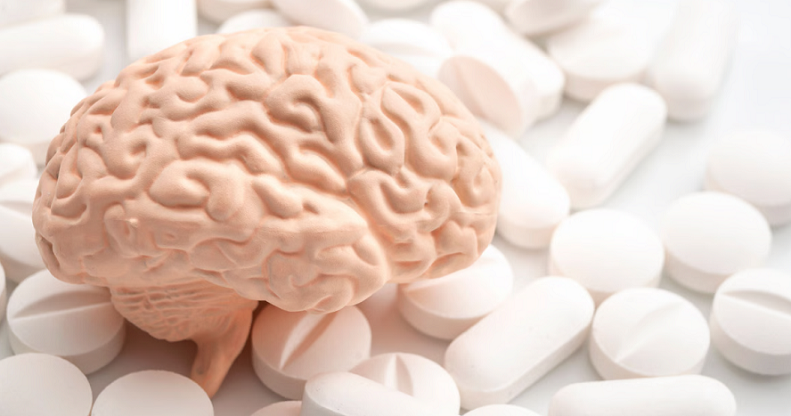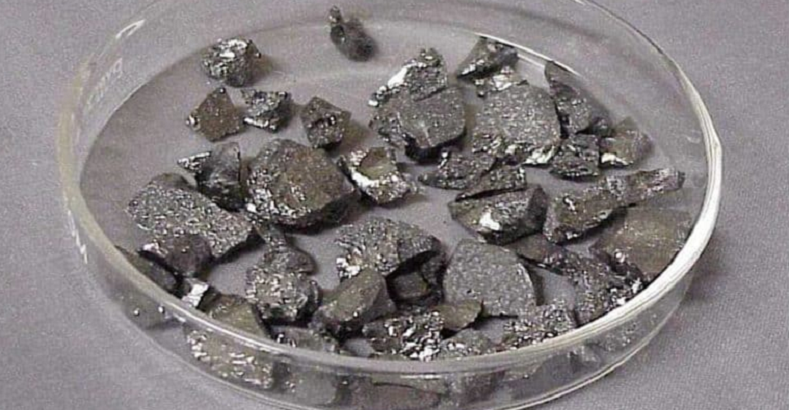
In our relentless quest to unlock the full potential of the human mind, the world of nootropics has unveiled a vast spectrum of substances, each promising to elevate cognitive function. While many turn to well-known compounds, there’s an intriguing, lesser-explored realm: the role of rare minerals in brain health. From the mood-regulating abilities of lithium to the brain-boosting power of boron, certain minerals may hold the key to enhanced cognition.
Contents
Understanding the Connection Between Minerals and Cognition
The human brain, though compact, is a remarkable powerhouse of complex processes and pathways. While it’s widely known that nutrition plays a significant role in physical well-being, fewer realize that the brain’s functioning, too, is profoundly influenced by our dietary intake, particularly of minerals. To grasp the potential of rare minerals as nootropics, it’s essential to first understand their foundational role in brain function.
The Role of Minerals in Neuronal Function
Minerals are integral to the proper functioning of our neurons — the nerve cells responsible for transmitting information throughout our body. These tiny cells work in harmony, transmitting signals through a complex network of pathways. The efficient transmission of these signals is heavily reliant on certain minerals.
For instance, calcium is vital for neurotransmitter release, while magnesium plays a crucial role in neuron activation. These minerals help maintain the delicate balance of neurotransmission, ensuring our brain functions smoothly. When considering rarer minerals like lithium or boron, their roles might not be as immediately obvious, but they too contribute significantly to neural processes.
Mechanisms of Action in the Brain
Each mineral operates differently within the brain’s intricate framework. Some, like lithium, are thought to influence the signaling pathways of neurotransmitters, effectively modulating the communication between neurons. Others might influence the health and fluidity of cell membranes or even support the production and function of various enzymes integral to cognitive processes.
Boron, for instance, affects the metabolism of steroid hormones and certain micronutrients that are vital for brain health. Its exact mechanism in enhancing cognition is still being explored, but preliminary evidence suggests that it might play a role in maintaining the structural integrity of cell membranes in the brain [1].
Deficiencies and Their Impact on Brain Health
A well-balanced intake of essential minerals ensures our brain functions at its best. However, deficiencies can lead to a range of cognitive impairments. For instance, a deficiency in magnesium can disrupt neural transmission, leading to potential memory lapses or reduced cognitive function.
In the case of rare minerals, deficiencies might not be as commonly discussed, but their impact can be equally profound. Lithium deficiency, though rare, has been linked with mood disturbances. Similarly, insufficient boron intake might impact the brain’s hormonal balance, potentially affecting cognitive abilities.

Lithium: The Mood-Stabilizing Mineral Nootropic
Lithium, often recognized in the context of rechargeable batteries or certain prescription medications, has a history spanning millennia in the realm of human health. Its subtle presence in our environment and its influence on the human psyche paint a narrative much richer than its atomic number suggests.
Natural Sources of Lithium
Lithium, a soft silver-white metal, is not usually found in its pure form in nature. Instead, it is derived from mineral springs, brine pools, and certain ores like spodumene and lepidolite. Some geographic regions are naturally enriched with lithium, leading to higher concentrations in their water supplies. Interestingly, these areas have been the subject of studies, with some suggesting a potential correlation between natural lithium consumption and mood stability among its inhabitants.
Historical and Traditional Uses of Lithium
The use of lithium as a therapeutic agent dates back to ancient Greece and Rome, where mineral springs containing lithium were sought after for their purported healing properties. Fast forward to the 19th century, and lithium was used in the treatment of gout, as it was believed to dissolve uric acid crystals. However, it was in the late 1940s and early 1950s that lithium’s mood-stabilizing properties began to gain recognition in modern medicine, leading to its use as a treatment for bipolar disorder [2].
The Role of Lithium in Mood Regulation
So, how does lithium exert its mood-regulating effects? While the precise mechanisms remain a topic of ongoing research, several pathways have been proposed. Lithium appears to modulate neurotransmission, possibly stabilizing neural activities and promoting neurotransmitter balance. It might also play a role in increasing brain-derived neurotrophic factor (BDNF), a protein vital for neuron survival and growth. Through these mechanisms and potentially others, lithium seems to stabilize mood swings and reduce the severity of manic episodes in bipolar patients.
Lithium as a Nootropic: Current Research Findings
Beyond its well-established role in mood stabilization, recent interest has burgeoned around lithium’s potential cognitive benefits. Preliminary studies suggest that low doses of lithium may enhance memory and protect the brain from certain neurodegenerative diseases. For instance, regions with higher lithium concentrations in drinking water have shown correlations with reduced rates of dementia and Alzheimer’s disease. These findings hint at a broader spectrum of neuroprotective and cognitive-enhancing benefits, making lithium a subject of intrigue in the nootropic community.
Safety and Recommended Dosages for Lithium
As with any substance, the efficacy and safety of lithium hinge on appropriate dosing. While it’s an essential trace element in our diet, excessive intake can lead to toxicity. In medicinal doses, used for treating bipolar disorder, monitoring is crucial due to its narrow therapeutic window. However, the nootropic community is primarily interested in micro-dosing — consuming amounts much lower than typical medical doses. Always consult with a healthcare professional before introducing lithium or any supplement into your regimen [3].

Boron: The Boosting Brain Power Nootropic
While boron might not be the first mineral that comes to mind when discussing brain health, its significance in the cognitive realm is slowly coming to the forefront. This naturally occurring element, often associated with strengthening bones and enhancing agriculture, also holds a lesser-known prowess: its potential to bolster brain power.
What is Boron and Where It’s Found
Boron is a trace mineral, present in small amounts in the Earth’s crust. It’s not found free in nature due to its reactivity with oxygen, but combined with other elements, it forms compounds called borates. These borates are the primary source of commercial boron extraction. Dietary sources of boron include fruits like apples and pears, legumes, nuts, and even some vegetables like broccoli and brussels sprouts. Certain regions, such as the Mediterranean, have naturally higher boron concentrations in their soil, leading to a richer dietary intake among their populations.
Cognitive Benefits of Boron
Recent studies have begun to unveil the cognitive potential of boron. While its effects on bone health and hormone regulation have long been established, emerging research indicates that adequate boron levels can enhance cognitive tasks like attention, short-term memory, and hand-eye coordination. Furthermore, there’s preliminary evidence suggesting boron’s potential in reducing the risk of cognitive decline and certain neurological diseases.
The Role of Boron in Hormone Regulation and Its Impact on the Brain
One of the more intriguing aspects of boron is its influence on hormone regulation. Boron plays a role in the metabolism of steroid hormones, which can have a direct impact on cognitive function. For instance, it aids in the conversion of vitamin D into its active form, which is crucial for brain health. Moreover, boron might influence the levels of sex hormones, such as testosterone and estrogen, both of which have cognitive implications. The mineral’s ability to modulate hormone levels potentially translates into improved mood, heightened alertness, and better overall brain function [4].
Latest Research and Findings on Boron as a Nootropic
In the realm of nootropics, boron is still a relatively fresh entrant. Initial research, however, offers promising insights. Animal studies have demonstrated that boron supplementation can improve motor skills and spatial memory. In humans, deficiency in boron has been linked with reduced brain electrical activity and poorer performance on cognitive tasks. While it’s essential to approach these findings with a balanced perspective, the initial forays into boron’s cognitive potential are undeniably exciting.
Safety Considerations and Dosage Recommendations for Boron
As with all minerals, balance is key. While boron deficiency can hamper cognitive performance, excessive intake can lead to potential side effects, such as nausea, irritability, or digestive discomfort. The recommended daily intake varies based on age, gender, and physiological status, but for most adults, it falls within the range of 1.0 to 3.1 mg/day. Before considering supplementation, it’s always prudent to consult with a healthcare professional to ensure you’re making informed and safe choices.
Other Noteworthy Nootropic Minerals
Beyond the more recognized minerals like lithium and boron, a spectrum of lesser-known minerals quietly exerts their influence on the vast canvas of human cognition. While they might not garner as much attention in popular discourse, their roles, both subtle and pronounced, deserve exploration.
Germanium: Potential Cognitive Enhancer
Germanium, a lustrous, hard, gray-white element, often finds use in the semiconductor industry due to its electrical properties. However, its potential for cognitive health is just beginning to be uncovered.
Benefits and Research: Germanium has demonstrated potential anti-depressant and anxiolytic effects in preliminary studies. It’s believed to play a role in increasing oxygen supply to the brain, which might boost overall cognitive function and mental clarity.
Strontium: Beyond Bone Health
Often associated with bone health, strontium’s influence on the brain is an area of budding research interest. Strontium is naturally found in certain foods, like seafood, whole grains, and root vegetables.
Benefits and Research: Some studies indicate that strontium ranelate, a medication used for osteoporosis, might have neuroprotective effects, particularly concerning Alzheimer’s disease. While the direct cognitive benefits of strontium remain under investigation, its potential neuroprotective properties are noteworthy [5].
Rubidium: An Underexplored Element
Rubidium, a soft, silvery-white metallic element, is often overshadowed by its more famous periodic table neighbors. However, its implications for mood and cognitive function are beginning to shine through.
Benefits and Research: Some studies have shown that rubidium can serve as a potential mood enhancer, particularly in cases of depression. Its mode of action is thought to be linked to the regulation of certain neurotransmitters, potentially offering a new avenue for mood and cognitive regulation.
Current Research and Findings on Each
As our knowledge evolves, so does our understanding of these rare minerals. The body of research around germanium, strontium, and rubidium is expanding, but it’s crucial to approach their potential benefits with both enthusiasm and caution. Ongoing studies continue to explore their mechanisms of action, potential synergies with other substances, and their long-term effects on cognitive health.
Precautions and Recommended Intakes
Each of these minerals, while offering potential benefits, comes with its set of considerations. Like all minerals, it’s essential to ensure that intake remains within recommended limits to prevent adverse effects. Overconsumption can lead to toxicity or imbalances in other minerals. Before considering supplementation, especially with these lesser-known minerals, a discussion with a healthcare professional is indispensable to ensure safe and informed decisions.
References
[1] Nootropics are being sold as a ‘mind boost’ – but are they a fad?
[2] The Best Vitamins and Nutrients for Your Brain Health, According to Experts
[3] Want to Buy Nootropics? What You Should Know First
[4] Brain Health
[5] Best Nootropic Supplements: Top 7 Nootropics to Boost Brain Health Naturally

